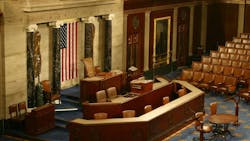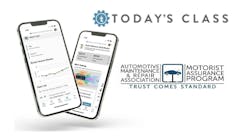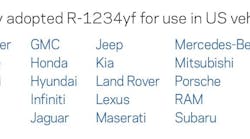The Automotive Service Association (ASA) supports the bipartisan and bicameral tax framework announced by U.S. Senate Finance Committee Chairman Ron Wyden (D-OR) and U.S. House Ways and Means Committee Chairman Jason Smith (R-MO), according to a news release.
If enacted, provisions in the Tax Relief for American Families and Workers Act of 2024 could provide financial relief to ASA members, according to the release.
New technologies are changing the automotive repair industry. Repairers must contend with an influx of new electric vehicles, telematics, autonomous and advanced driving systems that require sophisticated calibrations, and more.
To continue serving their customers, repairers have had and will need to continue to invest in costly facility and equipment upgrades. Some of these expenditures may require assuming debt. This tax proposal would reclassify interest paid on that loan as an allowable deduction.
It would also provide for a 100 percent bonus depreciation allowance for qualified property – such as equipment and vehicles – acquired and placed in service between Dec. 31, 2022, and Jan. 1, 2026.
Additionally, the legislation would raise the maximum amount a business may expense for qualifying property from $1 million (reduced by the amount by which the cost exceeds $2.5 million) to $1.29 million (reduced by the amount by which the cost exceeds $3.22 million), adjusting for inflation for taxable years after 2024.
“I’ve had to invest in a whole host of specialty equipment for my repair shop over the last few years,” said Scott Benavidez, AMAM, ASA Board of Directors president. “It’s never been harder for independent repair shops to stay in business. The Tax Relief for American Families and Workers Act of 2024 would make it easier for businesses like mine to continue providing high quality service to our communities for years to come.”
One provision in the framework of significant consequence to many repair business’ employees is the expansion to the Child Tax Credit. The bill would change how the maximum refundable credit is calculated by including consideration for the number of children in a household. It also increases the maximum per-child limit from $1,600 to $1,800 for tax year 2023, along with annual increases to the cap adjusted for inflation each ensuing year through 2025.
Independent automotive repair businesses are currently confronting pressures that "undermine their potential to thrive," according to the release. These challenges include adapting to rapidly advancing automotive technologies, a shortage of technicians capable of handling these new technologies, and high interest rates.


